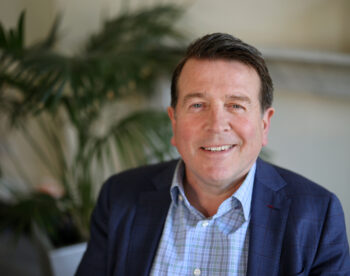A new study into the financial health of professional women’s football clubs in England suggests that money troubles and problems lie ahead unless governance structures and league design change significantly, writes David Little, a partner in our Corporate and Commercial Law team.
This new study into the financial health of professional women’s football clubs in England suggests that money troubles and problems lie ahead unless governance structures and league design change significantly. According to the researchers the study is the first of its kind worldwide to analyse the financial health of any professional women’s sports league in the world. It provides crucial insights into the challenges and opportunities facing the game.
Researchers from the University of Portsmouth examined the financial data of 73 annual accounts of 14 English Women’s Super League (WSL) clubs from 2011 to 2019. The study highlights critical concerns about the league’s financial sustainability and proposes a comprehensive road map for its development.
The report found that women’s football stands at a pivotal crossroad and the next direction of travel is likely to shape the future of the game for many years. On one hand, elite women’s football is entering a ‘new age’ of popularity, with increased attendances, media coverage, commercial partnerships, and mainstream interest, which has seen club revenue increase 590% (during the pre Covid pandemic period 2011-2019).

However, despite these gains a darker reality emerges as club debt has skyrocketed by 1,351%, indicating an alarming trend that could jeopardize the league’s financial stability and clubs’ longevity.
Dr Christina Philippou, Principal Lecturer, Accounting, Economics and Finance at the University of Portsmouth said: “Our research performed a financial assessment of the WSL, highlighting both areas of concern and strengths on which various stakeholders in the women’s game can build on. The recent review of women’s football led by Karen Carney, the growing clarity and focus on women’s football by the FA, and the increasing commercial and broadcaster interest in the women’s game as a whole all point to the financial opportunities that need to be explored and potential problems that can be mitigated before they affect the game.”
Findings also indicate an emergent group of dominant clubs on and off the pitch which may threaten long-term sporting integrity. While certain clubs have managed to establish themselves as powerhouses in terms of both financial resources and sporting success, this trend may risk a lack of competitive balance within the league.
To safeguard the financial health of WSL clubs and promote sporting competition, the researchers propose a series of recommendations, revenue distribution, licensing criteria, rewards and diversity on Boards. These measures aim to harness the positive momentum gained in recent years and guide the league toward a more sustainable future.
The study highlights the urgency for women’s football to navigate its financial landscape with care and foresight. By employing the study’s recommendations and adopting a holistic approach to financial health, the WSL has the potential to not only weather current challenges but to thrive sustainably, creating a brighter future for the game and its dedicated fans.
There is certainly growing financial interest in professional women’s football. Michele Kang is a US investor pioneering the idea of bringing multiclub ownership to women’s football. After being introduced to football initially during the 2019 women’s World Cup, Kang said she quickly saw a “significant business potential” and “jumped right in”.
Kang, who bought the Washington Spirit in 2022, recently acquired the London City Lionesses. Last year she also struck a groundbreaking deal to take control of the Olympique Lyonnais women’s team.
Reported here, by the Financial Times, she said: “Initially I had no intention of buying or investing, but as I understood more about soccer and especially women’s sport, I not only became passionate, I became a believer”, she said. “With the right level of investment and focus, there is no reason why this can’t grow.
The healthcare entrepreneur continued: “When you’re trying to do something for the first time that people never imagined, it takes time. Women’s teams have been viewed around the world as a sort charity, or somebody’s pet project. I think for a women’s team to be successful and achieve commercial viability, it should have a separate and dedicated focus.”
And I would add, a lot of money.
David Little is a Partner at Bishop & Sewell in our expert Corporate & Commercial team. If you would like to contact him, please quote Ref CB459 on either on either 07968 027343 / 020 7631 4141 or email company@bishopandsewell.co.uk.
The above is accurate as at 15 March 2024. The information above may be subject to change.
The content of this note should not be considered legal advice and each matter should be considered on a case-by-case basis.





